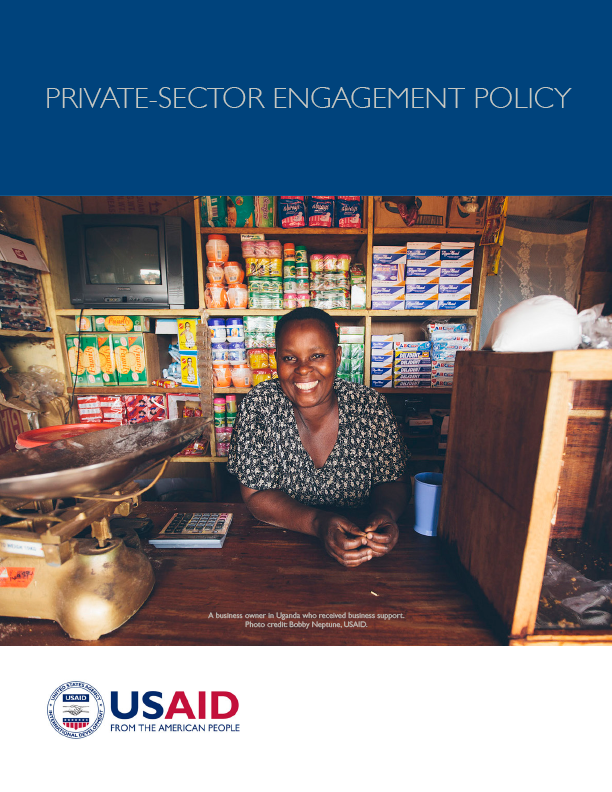- Work With USAID
- How to Work with USAID
- Organizations That Work With USAID
- Find a Funding Opportunity
- Resources for Partners
- Careers
- Get Involved
Speeches Shim
I am pleased to share with you our new policy on private-sector engagement. This policy comes at an exciting time in which leaders in both the public and private sectors are figuring out how to take the unique capabilities of each and apply them to problems that neither could address fully on their own. This engagement can make addressing challenges that once seemed insurmountable very real and achievable.
Private-Sector Engagement Policy ![]() (pdf - 3 MB)
(pdf - 3 MB)
Private-sector engagement is fundamental to our goal to end the need for foreign assistance. This policy is a call to action for staff from the U.S. Agency for International Development (USAID) and our partners to embrace market-based approaches as a more-sustainable way to support communities in achieving development and humanitarian outcomes at scale. This is based on our premise that private enterprise is one of the most-powerful forces for lifting lives, strengthening communities, and accelerating countries to self-reliance.
I believe the future of international development is enterprise-driven. “Enterprise-driven development” means aligning with private enterprises as co-creators of market-oriented solutions, with shared risk and shared reward. It means recognizing the value of engaging the private sector in development and humanitarian assistance to help shape solutions that achieve sustained impact and can carry forward long after USAID’s support has ended, and reorienting our investments to open markets for U.S. firms.
Implementing this policy will require a major cultural and operational transformation in the way USAID and our partners work. We must commit to deepening our collaboration with the private sector in seeking market-based approaches across all areas of our work, from economic growth, power, agriculture, and global health to humanitarian assistance, women’s empowerment, education, and addressing crisis and conflict.
The approach will require us to adjust our role. In many ways, we will be steering, more than rowing, in an effort to create a force-multiplier that will allow us to work together with the private sector to achieve greater impact than either of us could achieve alone. With a focus on building a freer, more peaceful, and more prosperous world, true to our democratic values, this policy represents an important first part of a major transformation in the way we operate. Ultimately, increasing our collaboration with the private sector across all areas of our work will make us better development and humanitarian professionals, bring us closer to our purpose of ending the need for foreign assistance, and provide greater opportunities for American businesses.

Ambassador Mark Green
Administrator, USAID


Comment
Make a general inquiry or suggest an improvement.